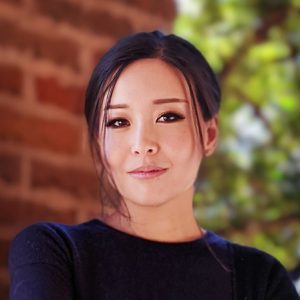Distinguished Teaching Fellow 2023-2026

Katherine L. Chiou is an archaeologist and Assistant Professor in the Department of Anthropology. Her areas of interest include foodways in the past and present, plant domestication, social inequality, Geographic Information Systems, data visualization, and responsible conduct of research. She received her BA from New York University and MA and PhD from the University of California, Berkeley. Since 2017, Dr. Chiou has overseen the Ancient People and Plants Laboratory which trains undergraduate and graduate students in archaeobotanical research. Her classes cover a range of topics including archaeology, paleoethnobotany, food and culture, GIS, professional ethics, and public engagement. In addition, Dr. Chiou also works on the promotion of ethical cultures in archaeology through collaborations with professional societies and the NSF Ethical and Responsible Research (ER-2) program and is the longtime organizer of the Society for American Archaeology’s Ethics Bowl competition.
Teaching Philosophy
I am committed to stimulating true transformation through immersive education and contextual learning. Throughout any given semester, I work with students to co-create an atmosphere of support, openness, and authenticity and tie course materials to current events and societal dynamics to demonstrate relevance and applicability. Such a milieu is grounded in trust and emboldens learners to experiment and err without fear of judgment or retaliation. I want students to walk away feeling that learning is an enjoyable and worthwhile experience when done in collaboration with peers.
As the instructor of record, I do not position myself as the flawless authority. Rather, I am a facilitator of mutual learning and discourse. My classes are designed to help students develop the capacity for divergent, critical, and analytical thought, underpinned by evidentiary support. These abilities enable them to reason with clarity and make informed decisions that impact not only themselves, but others.
Beyond mastering knowledge, I encourage students to grow as humans who continue to seek out learning opportunities and embody the three basic principles featured in the 1979 Belmont Report: respect for persons, beneficence, and justice. By imbuing course content with personal relevance and broader societal applicability, I endeavor to inspire students to significantly contribute to the world around them.